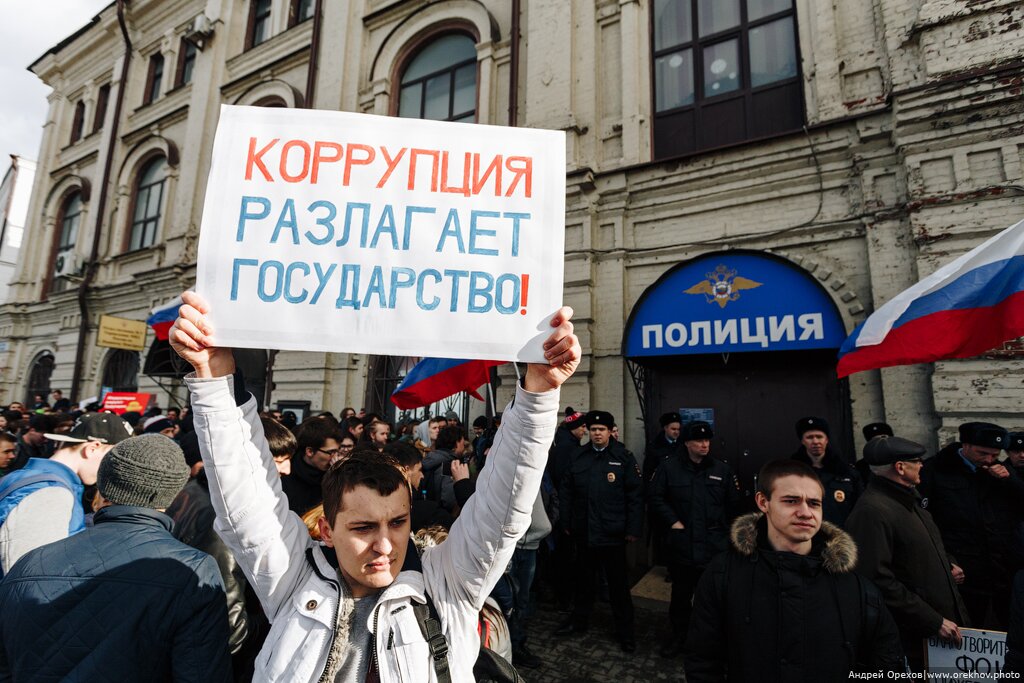Watch the event video here
Read the event recap here
On Wednesday, February 21st please join us for a talk on "Anti-Corruption Campaigns and Political Selection: Evidence from Russia" with David Szakonyi from George Washington University. This event is part of the Occasional Series, co-sponsored by the NYU Jordan Center for the Advanced Study of Russia and the NYU Department of Politics.
Cracking down on corruption has become a key tool for politicians to build popular support. But we know surprisingly little about whether these campaigns actually affect the behavior of current and future officials. This paper evaluates the electoral effects of a common anti-corruption measure -- mandating that officials submit financial disclosures -- using data on 25,286 municipal elections in Putin-era Russia. Using a difference-in-differences design, I first find that incumbents are much less likely to seek re-election if they later will have reveal their income and assets. Financial disclosures increase the risk that any illicit rents they accrued in office will be exposed. Moreover, this type of ethics law also reduces the number of candidacies among individuals likely to have engaged in tax evasion. I argue that financial disclosure laws operate as a personal audit, which generates public information for authorities to prosecute crimes committed both inside and outside of office. I show that where enforcement capacity is high, anticorruption campaigns can achieve their purported intention and shape the incentives to serve in government, even in regimes where many suspect other political motives are at play.
David Szakonyi is Assistant Professor of Political Science at the George Washington University, an Academy Scholar at Harvard University, and a Research Fellow at the Higher School of Economics in Moscow, Russia. His research investigates how elites translate economic power into political influence and the types of policies that best curb corruption. Projects underway look at businesspeople who run for elected office; the value of nepotism in government hiring; ongoing anti-corruption campaigns in Russia; and factors influencing the survival of autocratic regimes. His work has been published in the American Political Science Review, World Politics, and Journal of Politics, as well as popular publications such as Foreign Affairs, the Washington Post, and the Guardian. He received his PhD from Columbia and his BA from the University of Virginia.

